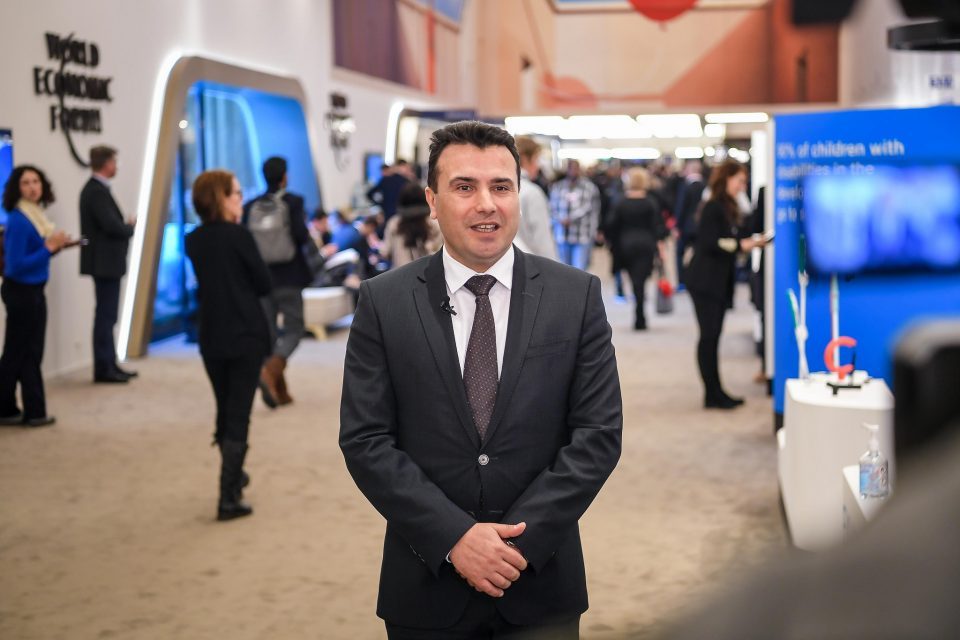When I became Prime Minister, Macedonia had disputes with all of our five neighbors, and today we have no open bilateral issues with our neighbors, only the church issue remains, but certain steps are already taken, Prime Minister Zoran Zaev said in a recent interview for N1’s Pressing.
Talking about the process of reaching the Prespa Agreement, the constitutional changes in Skopje and the ratification in Athens, he explained to viewers in the region that identity issues were not negotiated with Greece and that the national identity of Macedonians as Macedonians who speak the Macedonian language with their tradition, history remains.
Greece has accepted our right to self-determination and no one can change it, that I am a Macedonian who lives on this territory, Zaev said, adding that “no one can deny our right that we are Macedonians who speak the Macedonian language.
“We have finally got a country that nobody disputes, for which our ancestors fought,” he said.
Zaev pointed out that the crucial influence and responsibility for reaching an agreement with Greece came primarily from politicians from both countries, with major support from the United States and EU countries.
Here, after the agreements reached with Bulgaria and Greece, at the last EU ministerial meeting, the biggest advocates for Macedonia and Albania to get a projected start date for negotiations were precisely Bulgaria and Greece, Zaev said.
He added that the resistance to the agreement reached was exclusively for political reasons, and the proof is that “the reaction of the opposition in Macedonia and Greece is the same.”
We will get a seat at the NATO table in late February, and full membership after the ratification in the parliaments of NATO member states at the end of this or early next year, Zaev said.
Regarding objections coming from Russia over the agreement reached with Greece, the Macedonian Prime Minister assessed that all this was due to NATO membership.
“The West has been present in Macedonia since the former Yugoslavia, with billions of euros in aid, but we are making the decisions. Russia is our friend, as are the United States and the EU, but we make our decisions. Russia is against NATO expansion and here is the problem. We want a good relationship with Russia and I hope we will advance that relationship,” Zaev said.
He added that he understands the attitude of Russia, but over 80 percent of Macedonian citizens are in favor of NATO and this must be respected.
Zaev does not believe that Russia will try to block the implementation of the agreement with Greece.
He said that hopefuly the agreement with Greece will encourage leaders in BiH, Serbia and Kosovo to solve their problems, which is a condition for EU membership and will become NATO members, as there are no other options.
Only if the leaders stopped making calculations over their ratings and how to stay in power, because the state and the people suffer, Zaev concluded.
Regarding the open issues in the Balkans, Zaev said that all countries are multiethnic and opening and not closing the borders in the region should be “an ideal” to follow and the region should cooperate more.
In that context, the Macedonian Prime Minister mentioned the relation between Macedonia and Serbia, that the nations are fraternal and that the “one-stop shop” border project between the tow countries is underway.
As regards the ideas for the exchange of territories in the region, Prime Minister Zaev said that Macedonia is very careful and its official position is that it wants a positive solution between Belgrade and Pristina, which will offer lasting peace, better regional and economic cooperation and progress towards the EU.
“It’s not easy for Vucic or for Thaci, and I encourage them to work hard to find a solution because there were three issues in the Balkans, ours with Greece, BiH and the Kosovo issues, and now all the floodlights are being diverted to the other two issues,” Zaev said.
The Macedonian Prime Minister also spoke about Nikola Gruevski’s escape, mentioning among other things that the leader of VMRO-DPMNE Mickoski had met with Hungarian Prime Minister Viktor Orban and Serbian President Aleksandar Vucic before Gruevski’s escape, and so far he has not informed what he had discussed with them.
“The investigation is underway, we will inform about everything after it ends, we are all fighting in the region to prove that we are friends and that we respect the laws, we did not allow the friendship with Hungary to be distrupted, but it is not fair that a member of NATO and the EU to give us such a lesson …,” Zaev assessed.
The Macedonian Prime Minister said he did not expect to receive the Nobel Peace Prize, adding that the very nomination is an affirmation of Macedonia.






Comments are closed for this post.